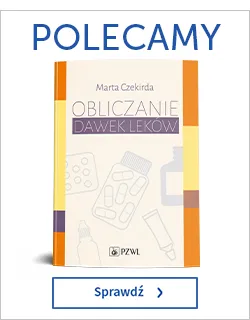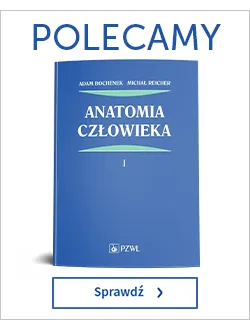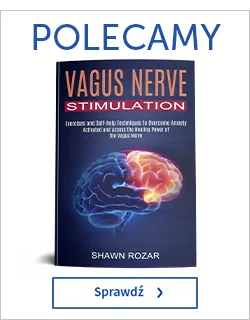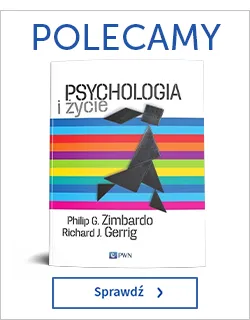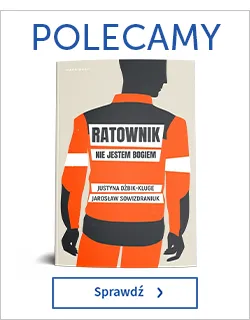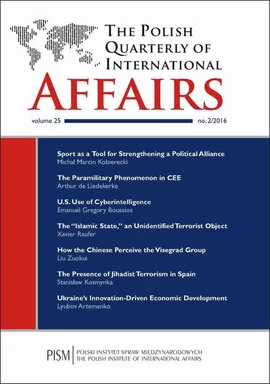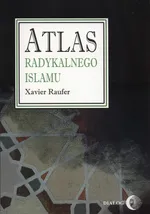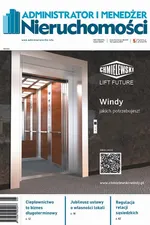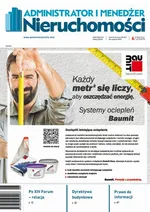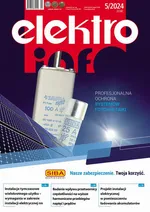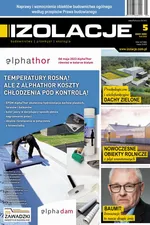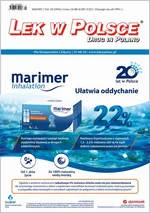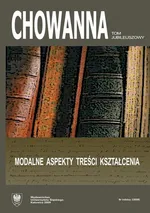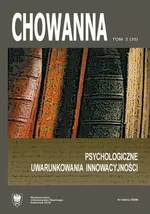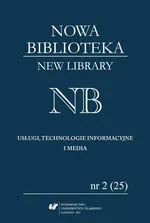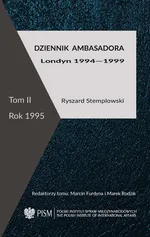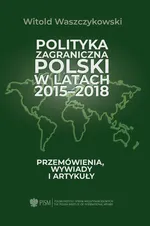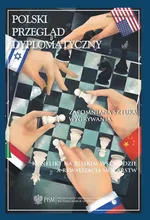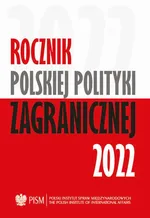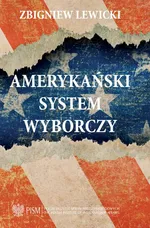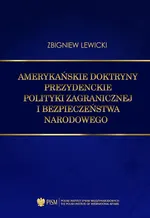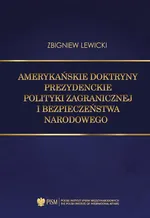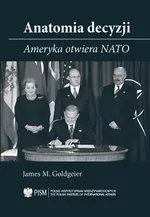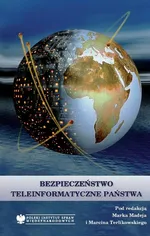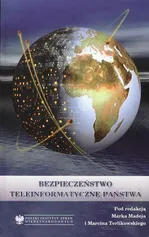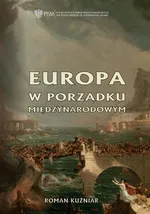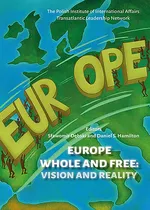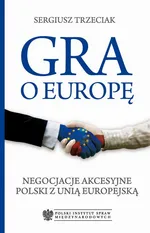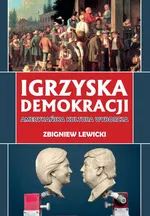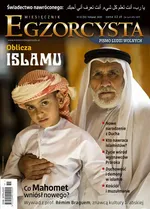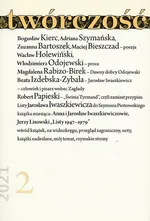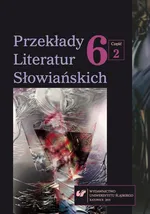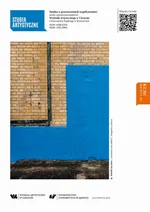- Kategorie:
- Redakcja: Kacper Rękawek
- Język wydania: ??angielski_pl_PL??
- ISSN: 1230-4999
- Liczba stron: 109
-
Sposób dostarczenia produktu elektronicznegoProdukty elektroniczne takie jak Ebooki czy Audiobooki są udostępniane online po uprzednim opłaceniu (PayU, BLIK) na stronie Twoje konto > Biblioteka.Pliki można pobrać zazwyczaj w ciągu kilku-kilkunastu minut po uzyskaniu poprawnej autoryzacji płatności, choć w przypadku niektórych publikacji elektronicznych czas oczekiwania może być nieco dłuższy.Sprzedaż terytorialna towarów elektronicznych jest regulowana wyłącznie ograniczeniami terytorialnymi licencji konkretnych produktów.
-
Ważne informacje techniczne
-
Minimalne wymagania sprzętowe:
- procesor: architektura x86 1GHz lub odpowiedniki w pozostałych architekturach
- Pamięć operacyjna: 512MB
- Monitor i karta graficzna: zgodny ze standardem XGA, minimalna rozdzielczość 1024x768 16bit
- Dysk twardy: dowolny obsługujący system operacyjny z minimalnie 100MB wolnego miejsca
- Mysz lub inny manipulator + klawiatura
- Karta sieciowa/modem: umożliwiająca dostęp do sieci Internet z prędkością 512kb/s
-
Minimalne wymagania oprogramowania:
- System Operacyjny: System MS Windows 95 i wyżej, Linux z X.ORG, MacOS 9 lub wyżej, najnowsze systemy mobilne: Android, iPhone, SymbianOS, Windows Mobile
- Przeglądarka internetowa: Internet Explorer 7 lub wyżej, Opera 9 i wyżej, FireFox 2 i wyżej, Chrome 1.0 i wyżej, Safari 5
- Przeglądarka z obsługą ciasteczek i włączoną obsługą JavaScript
- Zalecany plugin Flash Player w wersji 10.0 lub wyżej.
-
Informacja o formatach plików:
- PDF - format polecany do czytania na laptopach oraz komputerach stacjonarnych.
- EPUB - format pliku, który umożliwia czytanie książek elektronicznych na urządzeniach z mniejszymi ekranami (np. e-czytnik lub smartfon), dając możliwość dopasowania tekstu do wielkości urządzenia i preferencji użytkownika.
- MOBI - format zapisu firmy Mobipocket, który można pobrać na dowolne urządzenie elektroniczne (np.e-czytnik Kindle) z zainstalowanym programem (np. MobiPocket Reader) pozwalającym czytać pliki MOBI.
- Audiobooki w formacie MP3 - format pliku, przeznaczony do odsłuchu nagrań audio.
-
Rodzaje zabezpieczeń plików:
- Watermark - (znak wodny) to zaszyfrowana informacja o użytkowniku, który zakupił produkt. Dzięki temu łatwo jest zidentyfikować użytkownika, który rozpowszechnił produkt w sposób niezgodny z prawem.
- Brak zabezpieczenia - część oferowanych w naszym sklepie plików nie posiada zabezpieczeń. Zazwyczaj tego typu pliki można pobierać ograniczoną ilość razy, określaną przez dostawcę publikacji elektronicznych. W przypadku zbyt dużej ilości pobrań plików na stronie WWW pojawia się stosowny komunikat.
The Polish Quarterly of International Affairs 2/2016
(ePrasa)-
Druk: Warszawa, 2016
-
Wydanie/Copyright: wyd. 2
-
Autor: Alicja Minda, Anna Pochylska, Arthur De Liederke, Elena Kachanovich-Shlyk, Emanuel Gregory Boussios, Liu Zuokui, Lyubov Artemenko, Michał Marcin Kobierecki, Stanisław Kosmynka, Xavier Raufer
-
Redakcja naukowa: Kacper Rękawek
-
Wydawca: Polski Instytut Spraw Międzynarodowych
-
Formaty:
PDF (Watermark)WatermarkZnak wodny czyli Watermark to zaszyfrowana informacja o użytkowniku, który zakupił produkt. Dzięki temu łatwo jest zidentyfikować użytkownika, który rozpowszechnił produkt w sposób niezgodny z prawem. Ten rodzaj zabezpieczenia jest zdecydowanie najbardziej przyjazny dla użytkownika, ponieważ aby otworzyć książkę zabezpieczoną Watermarkiem nie jest potrzebne konto Adobe ID oraz autoryzacja urządzenia.
The Polish Quarterly of International Affairs 2/2016
„The Polish Quarterly of International Affairs” jest anglojęzycznym kwartalnikiem Instytutu poruszającym i analizującym kwestie istotne dla Europy Środkowej i Wschodniej. Stanowi forum debat nad współczesnymi wydarzeniami międzynarodowymi. Każde wydanie zawiera zbiór autorskich artykułów poddanych ocenie peer review, a także recenzje specjalistycznych publikacji.
The Polish Quarterly of International Affairs is the Institute’s English language journal and has a Central and Eastern European focus. It provides a forum for the analysis and debate of international affairs through a collection of original, peer reviewed articles on a contemporary theme.
Articles Michał Marcin Kobierecki Sport as a Tool for Strengthening a Political Alliance: The Case of the Eastern Bloc during the Cold War (s. 7) The aim of the article is to investigate sports exchanges within the Eastern Bloc from the perspective of their diplomatic significance. Such exchanges were intended to strengthen the alliance by generating friendship between the societies of its member states. This objective was not fulfilled, and positive sports diplomacy between the communist states failed. The article proves the hypothesis that the use of sport to strengthen the Eastern Bloc should not be associated exclusively with the interests of the Soviet Union, but with those of the communist governments of the allied countries in general. The investigation also sought the reasons for the failure of the whole initiative. Arthur de Liedekerke The Paramilitary Phenomenon in Central and Eastern Europe (s. 25) One of the less publicised consequences of the geopolitical turmoil that has come to characterise recent years has been the surge in the popularity of paramilitary units across Central and Eastern Europe (CEE). Although the groups operating in this region share a number of features, including military training, uniforms, and in some cases access to weapons, they have varying degrees of state support and legitimacy, depending largely on the nature of the perceived threat and their ideological foundations. In the Baltics and, to a lesser degree, in Poland, these organisations have been a traditional feature of national defence, or been harnessed by the authorities to ensure they operate in accordance with the law and within the scope of the interests of state. In Central Europe, however, they tend to be xenophobic, anti-democratic vigilante groups with the potential to become destabilising factors in the long run. Emanuel Gregory Boussios Termination or Accountability? The Controversy over the United States’ Use of Cyberintelligence (s. 35) The paper explores the debate over the role of United States governments in American cybersecurity. This issue has been brought to the attention of the broader public by the controversial case of Edward Snowden, who claimed that the U.S. government (and its allies) acted criminally by aiding and abetting its own agents in the unlawful collection of information on U.S. citizens. In the debate that followed, a range of legal and ethical questions regarding democratic states’ cyberintelligence gathering capacities were raised. Notably, there has been a tendency in the literature to portray the challenge thus raised in terms of an unbridgeable chasm, with “liberty” on one side and “security” on the other. By adding a new perspective to our understanding of the problem of protecting the U.S. cyberspace, this paper addresses the question of how transparent and publicly accountable the U.S. government should be when upscaling its cyberintelligence capabilities. The study also considers the practicality of cyberintelligence reforms in the U.S. demanded by Edward Snowden. Xavier Raufer The “Islamic State,” an Unidentified Terrorist Object (s. 45) Massive media coverage presents us with a picture of a single-entity network of “global partisans,” which we can call the Islamic State (IS), the Islamic State of Iraq and the Levant, ISIS, ISIL, Daesh, or the Takfiri. The aim of this study is to show that, while day after day we are told of the horrors perpetrated by this entity, warned of the threat posed to Europe by the imminent invasion of thousands of bloodthirsty moujahidin, and presented with terrifying figures about the size of its arsenal and “armies,” nothing is ever said of the heart of the matter: What is the Islamic Sate? What is its nature? Its essence? Liu Zuokui How the Chinese Perceive the Visegrad Group (s. 56) This paper analyses the Chinese perception of the Visegrad Group from the point of view of scholars, decision-makers, the media, and those in business. Different groups present different attitudes to and comments about the Visegrad Group and cooperation between China and the V4. Scholars have undertaken relatively deep research on the Visegrad Group. Decision-makers take a very pragmatic view and show less will to promote dialogue between China and the V4. The Visegrad Group is not well represented in the Chinese media. Chinese entrepreneurs do not regard the V4 as a useful platform for the promotion of their trade activities. Based on the above findings, the author puts forward some proposals for promoting pragmatic cooperation between China and the V4. Stanisław Kosmynka The Presence of Jihadist Terrorism in Spain (s. 68) After 11 March, Spain remained part of the militant Salafist narrative and constituted a potential target of attacks. Spanish territory was also used for undertakings in the regional (European) and global (Iraq, countries of Maghreb, and the Middle East) dimensions. This strategy constitutes an important indicator of the polymorphism of contemporary jihadist terrorism, including in the case of radical Salafist networks in Spain. Structures associated with the global network of jihadist groups (such as GSPC/AQIM, GICM and others) and cells of radicals that recruit in virtual space and maintain only declarative affiliations to Al Qaeda’s international structures have all made their presence felt in this country. Lyubov Artemenko Ukraine’s Innovation-Driven Economic Development: Institutional Challenges (s. 74) This paper studies the link between innovative development, institutional arrangements and economic performance in Ukraine. The research investigates whether, and to what extent, institutional arrangements in Ukraine influence its innovation-driven economic development, and how this impact can be measured for the whole economy and for a specific sector (IT). The research aims to discover how the pillars of the National Innovation System (NIS) and their interactions in the dynamic perspective influence the innovative development of Ukraine in general, and of the IT sector in particular. Mixed method research is applied in the paper. Empirical research is employed to test the causative effect of the pillars of Ukraine’s NIS on innovative development and to model the relationship between the explanatory and response variables. Qualitative research is then presented, in the form of responses to in-depth interviews with the personnel of IT companies, to support or contradict the results of empirical research. REVIEWS Margarita M. Balmaceda: Living the High Life in Minsk: Russian Energy Rents, Domestic Populism and Belarus’ Impeding Crisis (Elena Kachanovich-Shlyk) (s. 93) Marc Lynch: The New Arab Wars: Uprisings and Anarchy in the Middle East (Alicja Minda) (s. 97) Łukasz Kamieński: Nowy wspaniały żołnierz. Rewolucja biotechnologiczna i wojna XXI wieku (Brave New Soldier: The Biotechnological Revolution and 21st Century Warfare) (Anna Pochylska) (s. 102)
-
Inne autora
-
Inne z kategorii
-
Inne wydawcy
Inni Klienci oglądali również
Miesięcznik Egzorcysta listopad 2016
W islamie prawo zemsty (oko za oko, ząb za ząb) było wszechobecne wśród dzieci, z którymi pracowałam. Rozmawiałam z nimi wiele na ten temat. Dopiero po jakimś czasie wprowadziliśmy wzajemne przepraszanie się i pojednanie, które zap...
Twórczość 2/2021
Twórczość 2/2021Najstarsze polskie czasopismo literackie. Powstało w sierpniu 1945 roku w Krakowie. Pismo publikuje poezję, prozę i eseje twórców przede wszystkim polskich, zarówno pisarzy znanych, jak i debiutan...
Przekłady Literatur Słowiańskich. T. 6. Cz. 2: Bibliografia przekładów literatur słowiańskich (2014)
„Przekłady Literatur Słowiańskich” T. 6, część 2: "Bibliografia przekładów literatur słowiańskich – 2014 rok" rejestruje tłumaczenia, których ilość i wybór w zakresie autorów i konkretnych utwor&o...
Psychologia Społeczna nr 2(2)/2006
ISSN 1896-1800
Psychologia Społeczna jest nowym periodykiem, organem Polskiego Stowarzyszenia Psychologii Społecznej. Profil kwartalnika obejmuje problematykę szeroko rozumianej psychologii społecznej: obok eksperymentalnej ps, publiku...
Studia Artystyczne. Nr 2: Sztuka w przestrzeniach współczesności
Ideą publikacji jest wielowymiarowe ukazanie miejsca i roli sztuki we współczesności, a w tym: muzyki, sztuk plastycznych, grafiki, pedagogiki muzycznej. Treść publikacji stanowią trzy części tematyczne: pierwsza obejmuje teoretyczne rozważania ...
Dagerotyp. Studia z historii i teorii fotografii, Nr 2 (26) / 2019
„Dagerotyp. Studia z historii i teorii fotografii” [„Daguerreotype. Studies in history and theory of photography”] jest kontynuacją ukazującego się w latach 1993–2015 r. czasopisma „Dagerotyp”, wydawanego począ...
Recenzje
Nikt nie dodał jeszcze recenzji. Bądź pierwszy!
Zgłoś nadużycie

